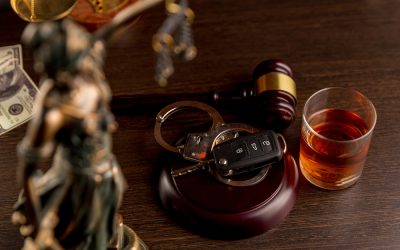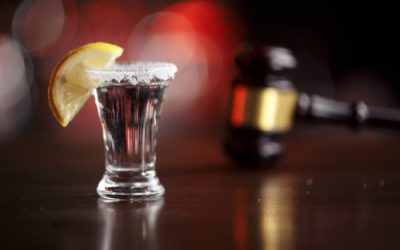Penal Code 647(f) makes public intoxication or being drunk in public illegal. It is a misdemeanor offense that carries penalties and requires legal representation. Your life can be turned upside down by walking home instead of driving. You can go to jail and pay steep fines if convicted, and you should do your best to avoid these charges and build a defense.
Discuss your options with a Los Angeles DUI attorney.
Defining Public Intoxication
Public intoxication violations are when someone is under the influence of alcohol or drugs and is in a public place. The intoxication reaches a point where the person is unable to care for their safety or is endangering others. Suppose a bartender or server refuses to serve a patron alcohol because they are overly intoxicated and the person acts aggressively.
Those actions constitute toxic intoxication. Another example is a person using drugs who falls asleep on a sidewalk. While extreme, these are some ways to get a public intoxication charge.
Penalties for Public Intoxication
If you are convicted of a misdemeanor, public intoxication is punishable by fines of up to $10,000 and six months in jail. Many of these penalties will range depending on your charges and defenses. Judges can also sentence you to summary probation instead of jail time.
An alternative to paying a fine can also be to do community service. You should speak with a criminal defense lawyer in California to discuss your potential penalties and how to fight them.
The Possibility of Expungement
A criminal record can impact your life in many ways, and if you have a public intoxication conviction, you can try to get the offense expunged. If you are successful, it absolves you of all penalties and disabilities stemming from the conviction.
Additionally, you will not need to disclose the conviction to a potential employer. These life-changing results can open doors that would have been closed by a criminal record. You will need to complete probation successfully when trying to get an expungement.
You can either complete felony probation or misdemeanor probation. Additionally, you must not be serving a sentence, changed with, or be on probation for a criminal offense.
You must finish your penalties before you can request an expungement. It is a very complex process that is based on meticulous details. When seeking an expungement, work with a criminal defense lawyer.
Public Intoxication and Immigration
Unfortunately, public intoxication can negatively impact your immigration status. Non-citizens who commit certain crimes can face deportation, and others can lead to the person being inadmissible. Public intoxication convictions can be considered grounds for deportation.
However, there are many nuances to those actions. Crimes that can lead to deportation or inadmissibility must fall into these categories:
- Aggravated felonies
- Crimes of moral turpitude
- Firearm offenses
- Drug offenses
- Domestic violence crime
The state must prove that your crime is severe enough to qualify you for deportation. Subsequent offenses or combining public intoxication with an existing criminal record can lead California officials to take deportation actions. If you are a non-citizen facing these charges, you must fight with the help of a California criminal defense lawyer.
Gun Rights and Drunk in Public Charges
Public intoxication convictions do not impact gun rights. However, that is not true for all convictions. Some misdemeanor or felony convictions can result in losing your gun ownership rights or a firearm ban.
If you face a firearm ban, it can last for ten years and be reported to the FBI. While violating public intoxication laws will not cause you to lose your gun or be put on a firearm ban, it can impact you in other ways.
Some negative impacts you can face are getting fired, landlords rejecting your application, and having educational opportunities rescinded. You can even be denied a professional license and lose a scholarship. Your social standing will also be impacted as people assume you are an irresponsible criminal.
Fighting Public Intoxication Charges
While an arrest can seem scary and as though the matter is over. The state must prove their case and show that you should be convicted of the crime.
There are some common defenses for public intoxication, like showing you were not in a public place. You can also argue that you were involuntarily intoxicated (forced intoxication by another party) or not creating an obstruction or interference. The prosecution must prove you were willfully under the influence in a public place and endangered yourself or others.
The two key components to focus on when fighting these charges are willfulness and the public. Under the law, willfully means that you willingly or intentionally did something, like voluntarily consuming drugs or alcohol. Proving the consumption of these substances was an accident or by force can clear you or drunk in public charges.
A public place is also a vital element of these cases, and you must show the location was not open and accessible to anyone. Some examples of obvious and less obvious places include:
- Barber shops
- Sidewalks and streets
- Business And entertainment venues
- A car parked on a public street
- Hallway in an apartment building
Your charges can be reduced or dismissed with a solid legal defense from a DUI attorney in Los Angeles.
Related Crimes
Public intoxication combined with other crimes can significantly raise the stakes. The three crimes often correlated to public intoxication are: disturbing the peace, driving under the influence, and loitering to solicit the purchase of alcohol.
Operating a motor vehicle while intoxicated is a crime under VC 23152. Your BAC must be at or above .08% for a DUI charge.
Disturbing the peace encompasses a range of actions like fighting, using offensive words, or being unreasonably loud.
It is illegal to loiter around bars, restaurants, or establishments that sell alcohol with the purpose of asking people to purchase alcohol on your behalf.
Get Help from a Los Angeles DUI Lawyer
Any crime involving drugs or alcohol in California can upend your life. Your best action is to consult an attorney about possible outcomes and ways to lower your charges. Speak to a DUI lawyer in Los Angeles if you are facing public intoxication charges.






